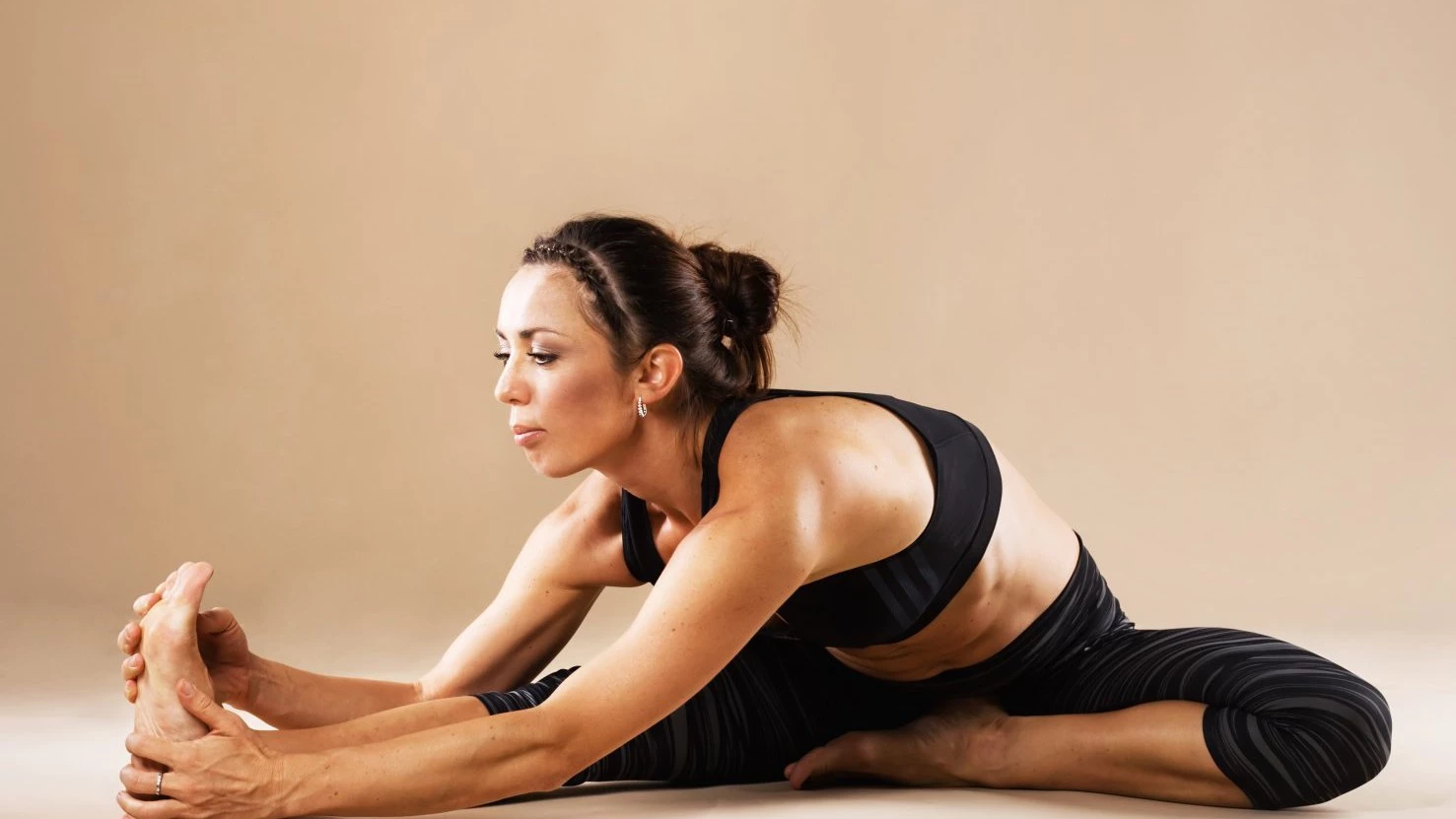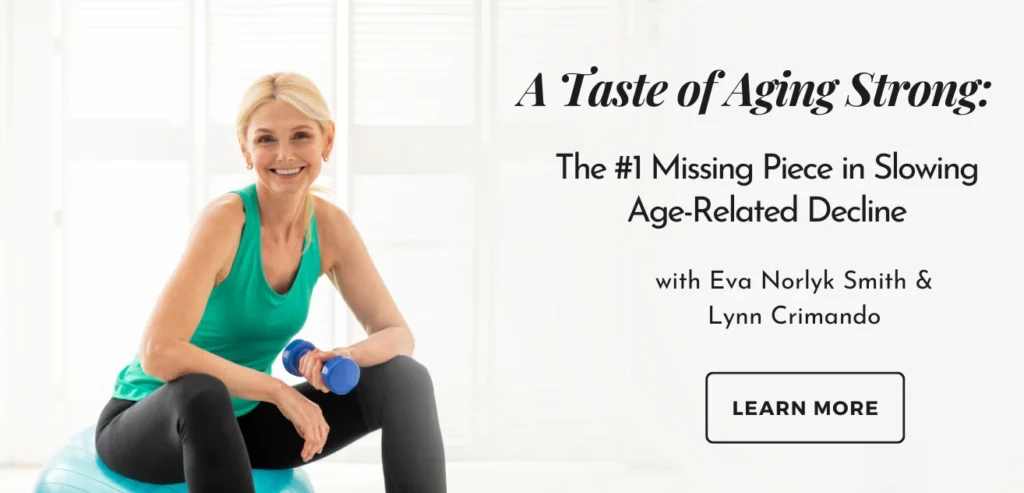New Study Compares the Effects of Yoga and Resistance Training

It is well known that aerobic exercise, or sustained activity that stimulates and strengthens the heart and lungs (swimming, jogging, cycling etc.), has a vast range of benefits from heart disease prevention, to weight management to stress busting and improving mood.
Wonder how the effects of non-aerobic exercise such as yoga and resistance training on mood and wellbeing compare?
A study in Science Direct of healthy, sedentary adults examined whether and how non-aerobic exercises such as resistance and training might be similar or differ when looking at mental health outcomes like depression, fatigue and quality of life. Both were found to be beneficial, but their effects were significantly different.
Researchers randomly assigned healthy, inactive university students and employees between the ages of 20 and 40 years either to a yoga program, resistance training classes or a no activity control group. To be included adults had to have no history of heart, lung or systemic disease or musculoskeletal or neurological problems, have a body mass index (BMI) of less than 29 kg/m2 (not obese), and not be receiving psychiatric treatment, or have participated in regular exercise during the previous 6 months.
Participants in both groups attended 50-minute classes, 3 times per week for seven weeks. Those in the yoga group engaged in a series of breath-focused, predominantly standing postures (tadasana [mountain], vrksasana [tree], uttanasana [chair], utthita trikonasana [triangle], chaturganga dandasana [four-limbed staff pose], adho mukha svanasana [downward facing dog], etc.) that increased in intensity over time. Postures were modified and props were used as needed.
The resistance training classes included a “treadmill/bicycle and some stretching exercises” as a warm-up, followed by strength-building activities (chest and shoulder press, biceps curls, leg extensions and curls, sit-ups etc.).
Both the yoga and resistance training group completed questionnaires immediately before and after the study for each of the following dimensions: Quality of life (i.e. pain sleep, social isolation, physical activity), depression, body image, self-esteem, and fatigue.
Yoga and resistance training improve overall well-being
Adults in both groups reported improvements at the end of the study. Those in the yoga program reported reduced levels of depression symptoms and decreased fatigue, and their body image improved as well. No changes were indicated for energy level, pain, and sleep.
Participants in the resistance training group also reported declines in fatigue and depression symptoms and improvements in body image, self-esteem and quality of life, as well as physical activity and energy level.
When the yoga and resistance training groups were compared, those in the yoga group reported greater declines in fatigue, self-esteem and quality of life, whereas those in the resistance group noted greater improvements in body image. Both showed similar levels of improvements in depressive symptoms. There were no changes observed in the no activity control group as anticipated.
While these findings are encouraging, there are a number of caveats to the story. The first is the high drop-out rate in each of the three groups. Ten of the original 27 participants (37%) in the yoga group and 6 of 25 (24%) in the resistance training groups dropped out. Two (8%) of the participants in the resistance group withdrew from the study due to injury, and 11 of the 28 control group participants (39%) did not complete the final assessment. The study’s authors did not account for these high rates of dropout in their statistical analyses, which leaves their findings speculative at best. There were also some significant differences in the 3 groups at baseline (sleep, energy level and social isolation) that were not considered in the analyses that may have had some bearing on the outcomes reported.
The authors concluded that both Hatha yoga and resistance exercise might be beneficial for mental health and overall wellbeing for healthy, sedentary adults. The high drop-out rate may also be an indication that the yoga and resistance training programs employed were not suitable for participants. If so, the study also draws attention to the fact that yoga and resistance exercise programs of the frequency, duration and intensity employed may not always be feasible, desirable or safe for inactive adults.
No matter where you begin on the road to fitness, it is important to remember to be mindful of your body’s signals, to refrain from activities that cause pain, and to consult your physician when in doubt of which types of activities are most suitable for your unique needs.
Also, read...
Can Simple Stretching Help Fight Cancer? The Groundbreaking Research of Dr. Helene Langevin
New Research Suggests that Stretching May Reduce Cancer
Related courses
Yoga for Back Care and Spinal Mobility: A 4-Week Practice Series
The Psoas Connection: Core Stability for Movement, Breath & Digestion
Optimizing Your Breath: Yogic Breath for Cellular Vitality

Dr. B Grace Bullock is a behavioral health, education, and organizational strategist and policy advisor, psychologist, educator, research scientist, book author and science writer. She serves as the Director of Mental and Behavioral Health for the Oregon Department of Education.
Grace has dedicated her career to health promotion, prevention, intervention, research, and developing policies, programs, and practices that ensure that all children and families have equitable access to culturally responsive mental health services and educational supports. She champions the creation of safe, welcoming, and inclusive school systems, cultures, and climates that honor diversity and intersectionality, fully recognize all ways of being and knowing, and ensure that all belong. This means working in partnership to realize detailed, actionable policies that drive sustainable systems to change.
Dr. Bullock strives to be a trusted partner, bringing the values and principles of mind-body medicine into strategic planning, education, and health policy, and program design, development, training, and the evaluation/research of offerings and policies that promote personal, interpersonal, and systemic well-being, effective and equitable leadership, decision-making and social change.
An educator at heart, she teaches courses and workshops on strengths-based, trauma-informed, equity-centered principles and practices, interpersonal relationships, stress resilience, and clinical practice at colleges, universities, professional schools, school districts, and organizations across the USA and Canada. She has spent more than two decades teaching and studying physiological and psychological interventions to reduce stress and support resilient, healthy relationships and systems, and is the author of the acclaimed book, Mindful Relationships: 7 Skills for Success – Integrating the science of mind, body & brain. Her research has been published in numerous empirical journals and featured in Psychology Today and The Greater Good Science Center, among others. She is the science writer for Mindful Magazine and Mindful.org and former Editor in Chief of the International Journal of Yoga Therapy.
She received a BA Highest Honors in Psychology, Summa Cum Laude from the University of California at Los Angeles, an MS and Ph.D. in Clinical Psychology from the University of Oregon, and completed her clinical residency at the University of Washington School of Medicine.



